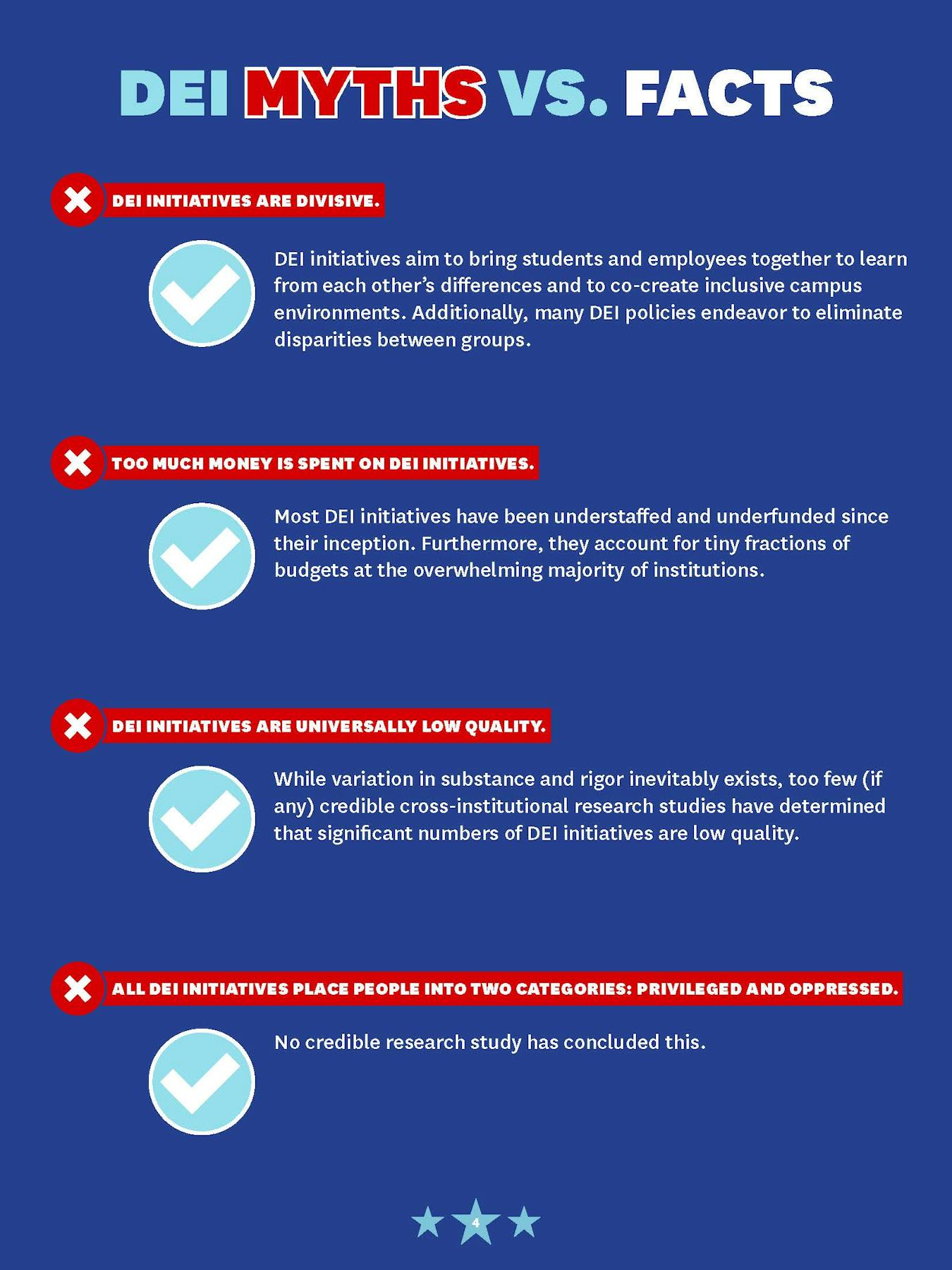“Truths About DEI on College Campuses: Evidence-Based Expert Responses to Politicized Misinformation” pushes back at what it perceives as false and damaging misinformation and lies about diversity, equity and inclusion in educational institutions and businesses.
The USC Race and Equity Center has released a new report, Truths About DEI on College Campuses: Evidence-Based Expert Responses to Politicized Misinformation, responding to politicized attacks on diversity, equity, and inclusion initiatives in higher education. The report pushes back at what it perceives as false and damaging misinformation and lies about diversity, equity and inclusion in educational institutions and businesses.
Produced by Shaun Harper, Director of the USC Race and Equity Center, the report gathers evidence-based essays from 11 respected experts on diversity, equity and inclusion in higher education in response to a March 7, 2024 hearing held by the U.S. House of Representatives titled, “Divisive, Excessive, Ineffective: The Real Impact of DEI on College Campuses.” Among others, those essays include responses from Mitchell J. Chang, UCLA professor of education and Asian American studies and interim vice provost for equity, diversity, and inclusion at UCLA, and Eddie R. Cole, an associate professor of education and history at UCLA and the Joy Foundation Fellow at the Harvard Radcliffe Institute.
In his response, Chang offers peer-reviewed research findings to illuminate three issues raised in the hearings concerning the state of the empirical research, the work regarding civil rights compliance, and the consideration of group membership in practice.
Pushing back against testimony claiming a lack of evidence of the effectiveness of DEI efforts in making students feel included and demonstrating improvements in retention and graduation, Chang notes that he published some of it in a peer-reviewed journal some 25 years ago. He adds that as the research grew, “one well-established pattern that emerged is that the impact of undergraduate education is appreciably enhanced by diversity-related efforts on colleges and universities, including those with the goal of increasing access for underrepresented students.”
In his comments, Cole offers a historical perspective, writing to “defend the dismissal of American history,” and expressing concerns over how recent debates over DEI intentionally ignore the past. Cole’s comments aim to offer historical framing to aid in the development of solutions.


The full report, including the responses from Professors Chang and Cole, is available here.
